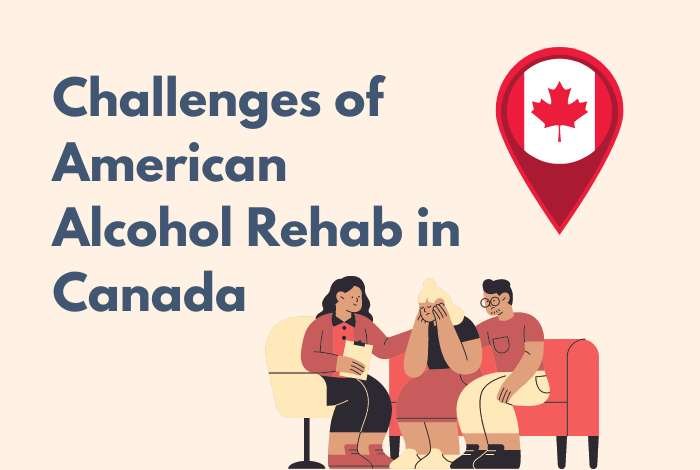When it comes to rehab abroad, common issues often arise. Based on my experience, the major takeaway is alcohol rehab in Canada may provide a different method, lesser expense, or greater privacy.

Before choosing this option, Americans should consider its drawbacks. That can be-
Getting Follow-Up
Accessing follow-up care following alcohol rehab in Canada is complicated. Unlike in the US, Canada’s provincial health systems may not share medical records electronically.
Americans who go to Canada for alcohol rehab may have trouble getting their medical records, test results, medications, or recommendations back home.
As non-residents, individuals may have trouble contacting and scheduling appointments with their Canadian rehab providers.
Support System Isolation
Alcohol rehab in Canada isolates patients from support networks. Recovering alcoholics often rely on family and friends.
Due to travel restrictions, fees, and time differences, Americans in alcohol rehab in Canada may not see their loved ones as often as they would like.
They may feel homesick and lonely if they don’t know the local culture. That can impact motivation, mood, and recuperation.
Navigating Healthcare Systems
Canada’s healthcare system is a hurdle for alcohol recovery. The Canadian healthcare system’s eligibility, coverage, billing, and quality criteria may be unfamiliar to Americans.
During my job period in a Canadian alcohol rehab, I have seen that many people may not know how to get services, negotiate with insurance companies or government organizations, or advocate medically as non-residents.
But with little effort, you can get an overall idea from someone or online sources.
Canadian alcohol rehab programs may differ from US ones in treatment methods, philosophies, and protocols.
No Insurance: No Scope of Financial Support
Insurance is a fourth drawback of alcohol rehab in Canada. American alcohol rehab patients in Canada cannot use public health insurance.
Most US health insurance plans only cover out-of-country treatment in emergencies or with pre-approval.
That implies that Americans seeking alcohol rehab in Canada may have to pay thousands of dollars out of pocket, which may dissuade them from obtaining help.
Language Issues
Most Canadians speak English. However, Quebec is mostly French-speaking.
If they don’t speak French, Americans in alcohol recovery in Canada may have trouble connecting with professionals and peers.
That can influence their treatment program understanding, group participation, and caregiver rapport.
Some Americans seeking a change of scenery, fewer costs, or greater privacy may consider alcohol rehab in Canada. According to SAMHSA, 90% of drug users don’t get treatment. 17% of rehab participants leave unsupervised.
- What to Pack for 30-Day Rehab? FREE Checklist - May 30, 2024
- Types of Outpatient Rehab: Difference One Should Know - March 28, 2024
- Truth Behind FMLA: Hidden Hurdles of Alcohol Rehab Leave - March 28, 2024